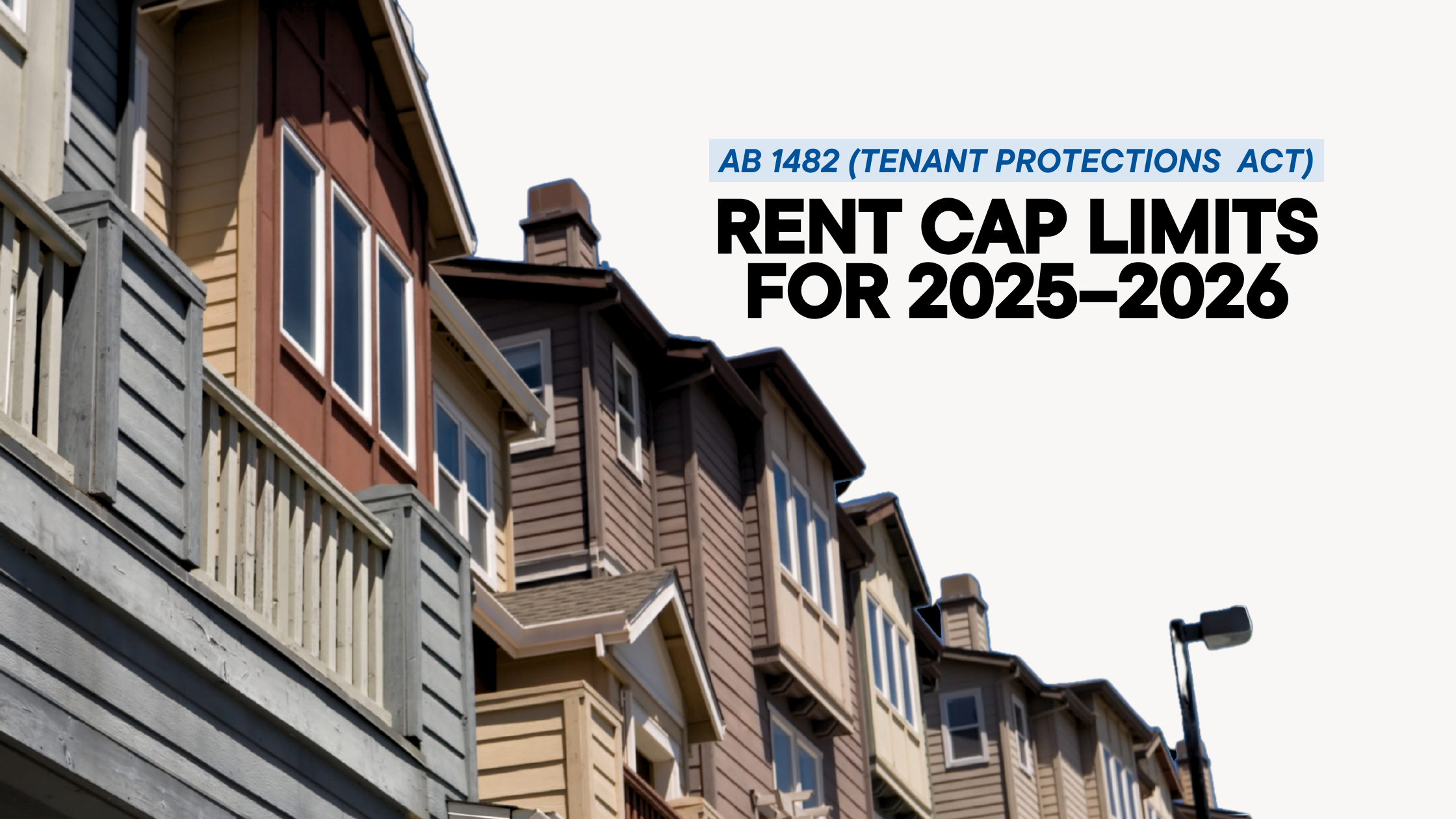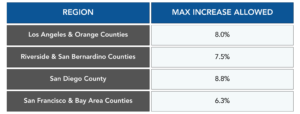LATEST IN THE LAW


AB 1482 Rent Increase Limits for 2025–2026: Guidance for California Property Owners
May 22, 2025 0 Comment Category: Estate LawCalifornia’s Tenant Protection Act (AB 1482) continues to impact landlords statewide. For those who own multifamily properties built before 2010 (15+ years ago), rent increases aren’t arbitrary—they’re capped based on inflation and state law.
If you’re managing real estate in California, staying on top of these changes isn’t optional—it’s a must. Let’s walk through what’s changed, how much you can raise rent from August 1, 2025, through July 31, 2026, and what you need to know to avoid legal and financial headaches.
Quick Recap: What Is AB 1482?
AB 1482, formally known as the Tenant Protection Act of 2019, places statewide rent control and eviction protections on certain residential rental properties in California.
The law applies to:
-
Multi-family residential units more than 15 years old
-
Properties not subject to local rent control ordinances
-
Properties not exempted (more on that below)
The law sets a limit on how much rent can be raised annually, calculated as 5% plus the applicable Consumer Price Index (CPI) increase for that region.
📊 2025–2026 Rent Increase Caps (Based on CPI Data)
With the new CPI data published, landlords can now calculate the maximum allowable increases:
If your property is outside these counties, CPI rates for other areas will be published by the California Department of Industrial Relations in June 2025.
Who’s Exempt From AB 1482?
Not every property falls under AB 1482. Here are common exemptions:
-
Single-family homes or condos, if the owner is an individual (not a corporate entity) and gives proper notice to tenants
-
New construction (built within the past 15 years)
-
Affordable housing governed by regulatory agreements or tax credits
-
Owner-occupied duplexes where one unit is occupied by the owner
Still, exemptions are not automatic. You need to provide the correct legal notices to tenants under California Civil Code §1946.2.
How to Calculate Your Rent Increase Legally
Here’s a quick example using San Diego County’s 8.8% limit:
Let’s say the current rent is $2,000.
The max rent increase allowed = $2,000 x 0.088 = $176/month
New maximum rent = $2,176/month
Make sure your calculation includes:
-
Base rent (not including utilities or other fees)
-
Effective date of the rent increase (must fall between Aug 1, 2025 – July 31, 2026)
-
Proper written notice to the tenant (at least 30 days for increases under 10%, 90 days for more)
What Happens If You Exceed the Cap?
This is where many landlords get tripped up. Increasing rent beyond the allowable limit can lead to:
-
Rent rollback orders
-
Fines or penalties
-
Tenant lawsuits or class actions
-
Potential attorney’s fees awarded to the tenant
According to Davidovich Stone Law Group, failure to comply with rent control laws is a common—and expensive—legal mistake. Legal missteps can erode property value and expose you to long-term risk.
Pro Tips for California Property Owners
Want to stay compliant and still protect your ROI? Keep these in mind:
-
Document everything — Notices, calculation sheets, CPI rates used
-
Give proper notice — Include the required language under Civil Code §1946.2
-
Check for exemptions yearly — Construction age and ownership status can shift applicability
-
Review local rent ordinances — Some cities have stricter rules than AB 1482
-
Work with legal counsel — Especially if you manage multiple properties or receive tenant pushback
Legal Support From Davidovich Stone Law Group
If you have questions about:
-
Calculating rent increases correctly
-
Determining if your property qualifies for exemption
-
Drafting legally compliant tenant notices
-
Defending against tenant complaints
Davidovich Stone Law Group provides comprehensive legal services for California property owners and landlords. Our firm helps clients interpret AB 1482, stay compliant, and defend against legal claims related to rent increases and tenant disputes.
👉 Contact us today for a consultation to assess your property’s compliance or request help with tenant communications.


leave A comment